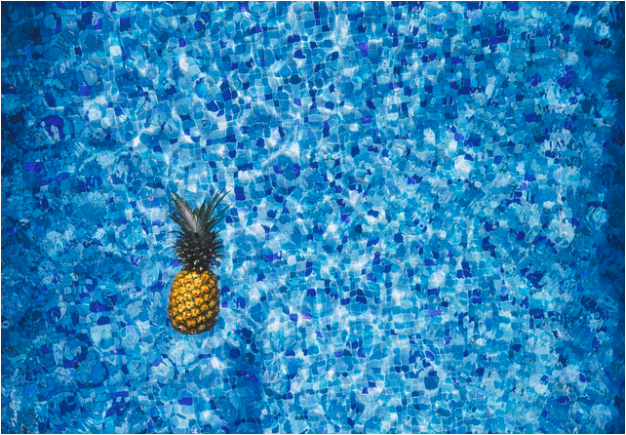
How many times have you heard not to swim until 30 minutes after eating? Is this really true or just a myth? Well, you’d be surprised to learn that this is mostly a myth. People (usually moms!) often say to wait on swimming after a full meal, otherwise you can get cramps in your legs and arms. This old saying comes from the fact that more blood is going to the stomach to aid in digestion. However, there is no evidence to support this. As long as you feel good, you can a swim right after eating!
What other misconceptions might you have believed all these years? Below we share four common swimming pool myths – and their truths!
Myth #1. A strong chlorine smell means there’s too much chlorine in the pool.
The smell of chlorine is not due to too much chlorine in the water. It actually occurs from chloramines – bacteria that chlorine attaches to in the water. When the pool is shocked, the chloramines turn into oxygen and leave the water. This is what you are smelling – chlorine in the air. However, if the chlorine is in the air, it means it’s not in the water doing its job.
Myth #2. If you swim underwater with your eyes open, they will burn.
Chlorine won’t burn your eyes, but water with unbalanced pH levels will. If you have your own personal swimming pool, you can manage pH levels easily. Test your water to determine what the pH levels are – usually you will find that they are too high. The best way to lower pH levels is by pouring muriatic acid or granular acid into the deep end of the water. To avoid burning eyes, keep the pH between 7.2 and 7.6.
Myth #3. Saltwater pools do not have chlorine in them.
Saltwater pools do have chlorine, though it’s created in a much different way. Salt water is moved through a metal cell that is charged with an electrical current, which creates chlorine. Also, salt water pools need shock treatments to keep them clean and free of algae.
Myth #4. Pools that look clean are clean.
What could be cleaner than a swimming pool with crystal clear water? Well, many things. Unfortunately, the appearance of pool water isn’t always a good indication of its quality. This is why it’s important to test your water chemistry each week to make sure that the water is healthy and won’t make your swimmers sick. If you’ll be swimming in a public pool, you can’t control the chemistry, so follow safe practices such as showering after swimming.
What myths are you most surprised by?

 CALL US TODAY!
CALL US TODAY!



